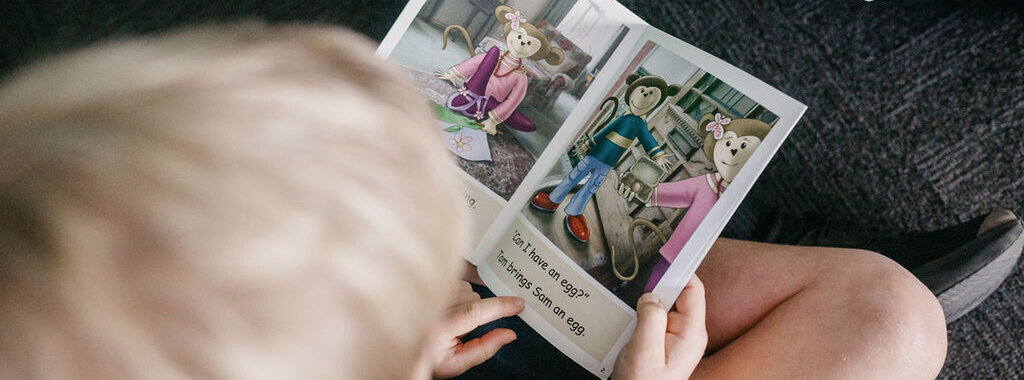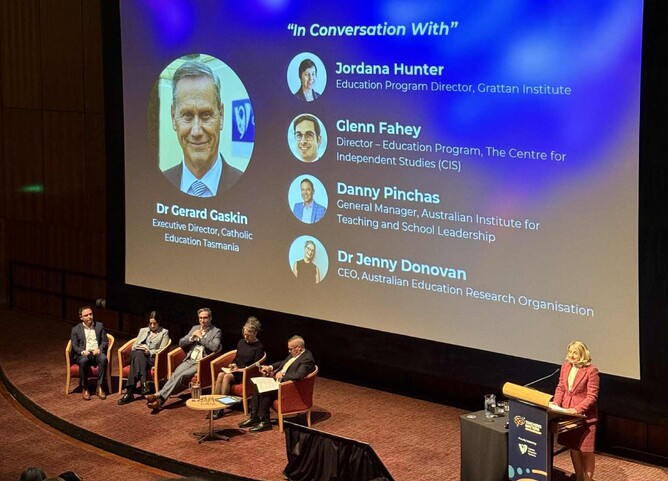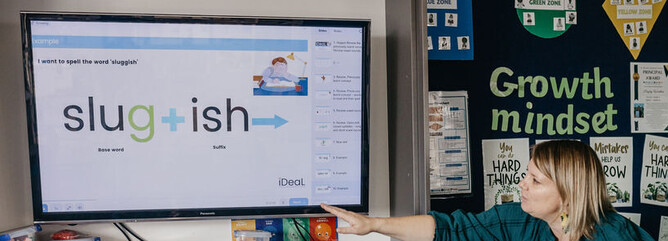It was great to attend the Teaching Matters Summit in Hobart and to see a small Kiwi contingent there. As we continue to move forward with Structured Literacy and broader reform here in Aotearoa, I have developed a genuine passion for all things reform. I enjoy going deep in my own learning about what truly successful and impactful change takes.
A highlight for me was attending several robust panel discussions with the following experts: Jordana Hunter, Education Program Director at the Grattan Institute, whose work shapes national conversations around teacher quality and evidence-based instruction. Dr Jenny Donovan, CEO of the Australian Education Research Organisation, whose leadership continues to influence policy and practice through rigorous research and reform. Patrick Ellis, Education Leader at Catholic Education Canberra and Goulburn, who has led the Catalyst initiative to transform teaching practice across 56 schools.
Listening to these leaders, I was reminded of how much collective wisdom and courage exist within our profession.
Bold change can feel unsettling.
The experts reminded us that bold change sometimes asks us to set aside approaches we have loved if they are not helping learners. That can feel unsettling, but our job is to put students first, even if it means stepping outside our comfort zones. When we adopt a new practice, we must also stop doing the old thing it replaces. For example, if we know running records are not the most effective measure of progress, we need to be brave enough to stop using them. It is not about blame. It is about freeing up energy for what works.
Match the approach to the purpose.
The panel made it clear that explicit teaching, which involves showing, modelling, guiding, and checking for understanding, is especially critical when content is new, foundational, or when we need students to commit knowledge to long-term memory. It is not a call to ban all discovery or inquiry learning. It is about matching the approach to the purpose and the phase of learning. Build habits through small, sustainable shifts such as clear modelling, guided practice, checking for understanding, and spaced review, particularly for foundational knowledge and new material.
Seeing great teaching in action is powerful. Visit schools that are already moving the dial. If you would like help finding such schools, we would be happy to point you in the right direction.
Don’t fall into busy work.
Another strong theme was that progress monitoring must be meaningful. If we are not measuring what truly matters for learning, then our efforts risk becoming busy work. Use assessments that give helpful information about what students can and cannot yet do so that you can respond quickly. Keep the focus on information that improves teaching, not paperwork that ticks boxes.
Remove time-heavy barriers.
Reform is exhausting when teachers are left to hunt for resources or recreate materials on weekends. If we want teachers to teach effectively, we must remove every barrier we can. Teachers need reliable, high-quality instructional materials that are accessible without hoops. Leaders and systems should make it easy to do the right thing, not harder.
Pause and consider the road ahead.
While the summit was in Australia, and their contexts are not identical to ours in Aotearoa, we attended to listen, learn, and reflect. Similar to New Zealand, schools are at various stages in their literacy journey, resulting in a diverse literacy landscape. Seeing and hearing this helps us appreciate how far many of our schools have already come, while also sparking ideas for where we can strengthen and refine our own approaches.
It is a perfect moment to pause, take stock, and consider the road ahead.
As many of you step into a well-earned holiday break, I hope you get the chance to rest, recharge, and spend time doing what fills your cup. When you return, take a moment to notice the places where bold change is already happening. Visit them, ask questions, share what you learn, and know that we have your backs as we navigate this journey together.
Jordana Hunter said, “We should be able to shine a light on what is working. We must not be embarrassed about elevating success.” Healthy competition and open classrooms can drive everyone forward. Visit each other’s schools. See what is working. Please share it. Shine a light on successes so the profession can learn and be encouraged.
Teaching Matters left me grateful, energised, and determined. Reform is not tidy or linear. It is imperfect and human. But with evidence, collaboration, and a willingness to listen and learn, we can keep making a lasting difference for every learner.
If you’d like support with mapping out the next pieces to your literacy roadmap, or to know which New Zealand schools are moving the dial and deserve celebration, get in touch. We’d be glad to point you in the right direction. There are so many incredible examples right here at home.





